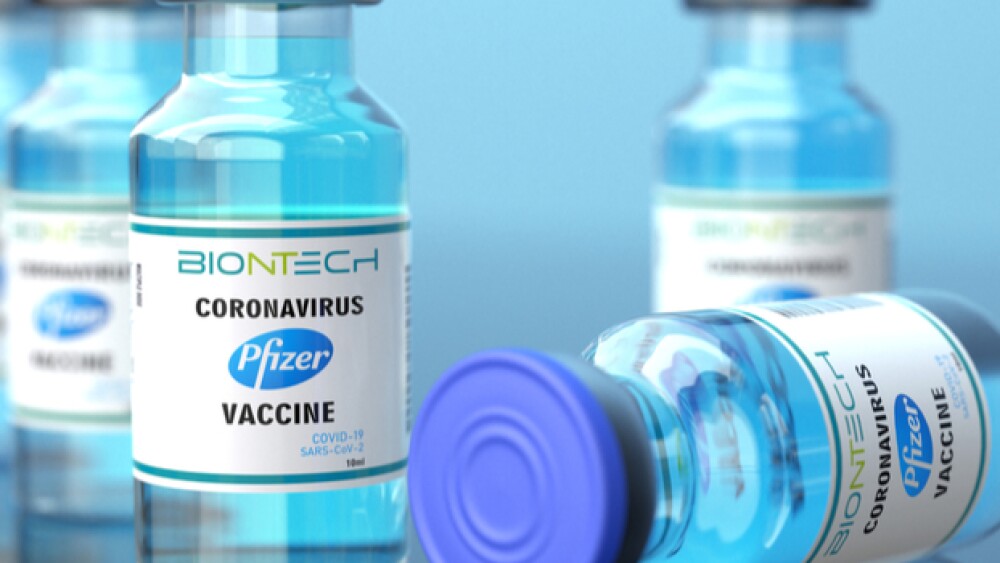Pfizer and BioNTech released early data Thursday morning from a Phase II/III trial assessing an Omicron-specific booster that showed it provided significant protection, confirming early research.
Early data released Thursday from a Phase II/III trial showed Pfizer and BioNTech‘s Omicron-specific booster provided significant protection against the currently circulating strains of the SARS-CoV-2 virus.
The data confirms early research that led to the authorization of the booster last month. It suggests the booster will provide better protection against Omicron BA.4/BA.5 sublineages than the original vaccine across younger and older adults, the companies announced in a joint announcement.
Data from patients 18 years of age and older showed the booster significantly increased Omicron BA.4/BA.5 neutralizing antibodies one week after receiving the shot, the partners noted.
This data comes more than a month after the FDA greenlit the use of the booster, which is specific for the BA.4 and BA.5 strains of COVID-19, in individuals ages 12 and up. The booster dose was given the nod from the regulatory agency without the in-human data.
The BA.4 and BA.5 strains are the most dominant Omicron strains circulating in the United States at this time. Development of the booster came at the urging of the FDA, which asked vaccine makers to produce boosters that target these two strains.
More mature data from the Phase II/III study is expected in the coming weeks, Albert Bourla, CEO of Pfizer, said in a brief statement.
But, from what has been seen so far, Bourla said the booster dose can provide better protection against currently circulating variants than the original vaccine and also potentially curb future case surges this winter.
A Look at the Numbers
The Phase II/III study assessed a 30-µg dose of the Omicron BA.4/BA.5-adapted bivalent booster in adults 18 and up. The trial included 900 healthy volunteers. Trial participants were required to be over the age of 12 and have received at least three doses of an authorized COVID-19 vaccine.
Participants over the age of 18 received either a 30-µg or 60-µg booster dose of Pfizer and BioNTech’s Omicron BA.4/BA.5-adapted vaccine. Trial participants aged 12 to 17 received a 30-µg booster. Comparisons to support potential full licensure and registrations globally will be made with a control group who previously received a fourth dose with the original vaccine, BioNTech and Pfizer stated.
The booster dose showed a similar safety profile to the original vaccine, according to the early data.
Pfizer and BioNTech anticipate additional data related to responses at one-month post-administration in the coming weeks. The additional data is expected to support full approval of the bivalent vaccine in the U.S., as well as support regulatory filings in other markets.
The announcement comes one day after Pfizer and BioNTech were granted Emergency Use Authorization from the FDA for a 10-µg booster dose of their Omicron BA.4/BA.5-adapted bivalent COVID-19 vaccine for children between the ages of 5 and 11. Doses from this vaccine will be shipped to providers following a green light from the CDC.
Pfizer and BioNTech have also initiated a Phase I/II/III trial assessing the Omicron BA.4/BA.5-adapted bivalent vaccine among children 6 months through 11 years of age, the companies noted.





